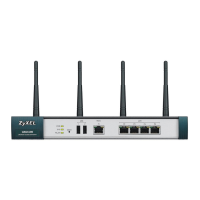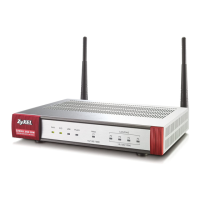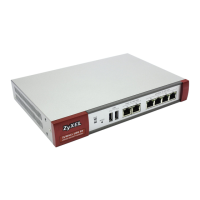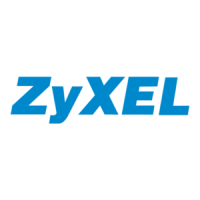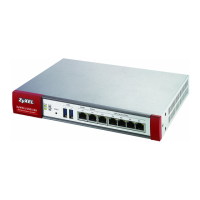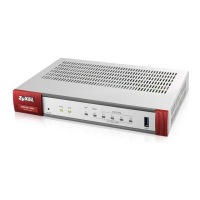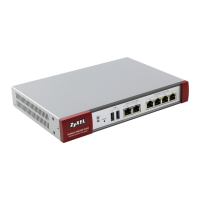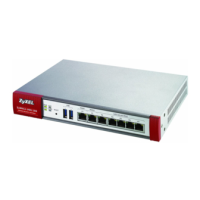Chapter 12 Policy and Static Routes
UAG Series User’s Guide
206
The following table describes the labels in this screen.
Table 88 Configuration > Network > Routing > Policy Route
LABEL DESCRIPTION
Use IPv4 Policy
Route to
Override Direct
Route
Select this to have the UAG forward packets that match a policy route according to the
policy route instead of sending the packets directly to a connected network.
Add Click this to create a new entry. Select an entry and click Add to create a new entry after
the selected entry.
Edit Double-click an entry or select it and click Edit to open a screen where you can modify the
entry’s settings.
Remove To remove an entry, select it and click Remove. The UAG confirms you want to remove it
before doing so.
Activate To turn on an entry, select it and click Activate.
Inactivate To turn off an entry, select it and click Inactivate.
Move To change a rule’s position in the numbered list, select the rule and click Move to display a
field to type a number for where you want to put that rule and press [ENTER] to move the
rule to the number that you typed.
The ordering of your rules is important as they are applied in order of their numbering.
# This is the number of an individual policy route.
Status This icon is lit when the entry is active, red when the next hop’s connection is down, and
dimmed when the entry is inactive.
User This is the name of the user (group) object from which the packets are sent. any means all
users.
Schedule This is the name of the schedule object. none means the route is active at all times if
enabled.
Incoming This indicates where the packets are coming from. For example, it shows the interface on
which the packets are received or the VPN tunnel through which the packets are sent.
Source This is the name of the source IP address (group) object. any means all IP addresses.
Destination This is the name of the destination IP address (group) object. any means all IP addresses.
DSCP Code This is the DSCP value of incoming packets to which this policy route applies.
any means all DSCP values or no DSCP marker.
default means traffic with a DSCP value of 0. This is usually best effort traffic
The “af” entries stand for Assured Forwarding. The number following the “af” identifies one
of four classes and one of three drop preferences. See Assured Forwarding (AF) PHB for
DiffServ on page 212 for more details.
Service This is the name of the service object. any means all services.
Source Port This is the name of a service object. The UAG applies the policy route to the packets sent
from the corresponding service port. any means all service ports.
Next-Hop This is the next hop to which packets are directed. It helps forward packets to their
destinations and can be a router, outgoing interface or trunk.
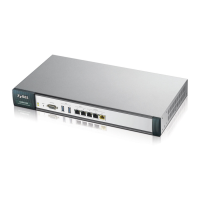
